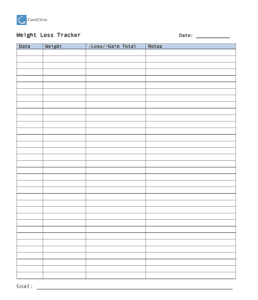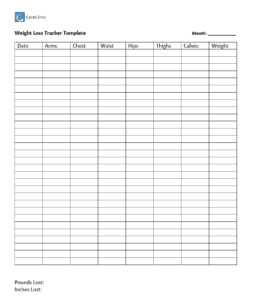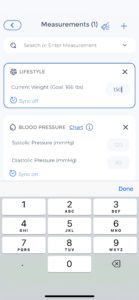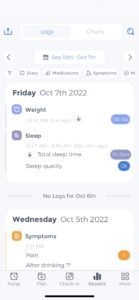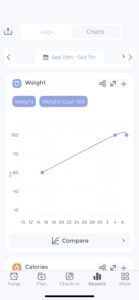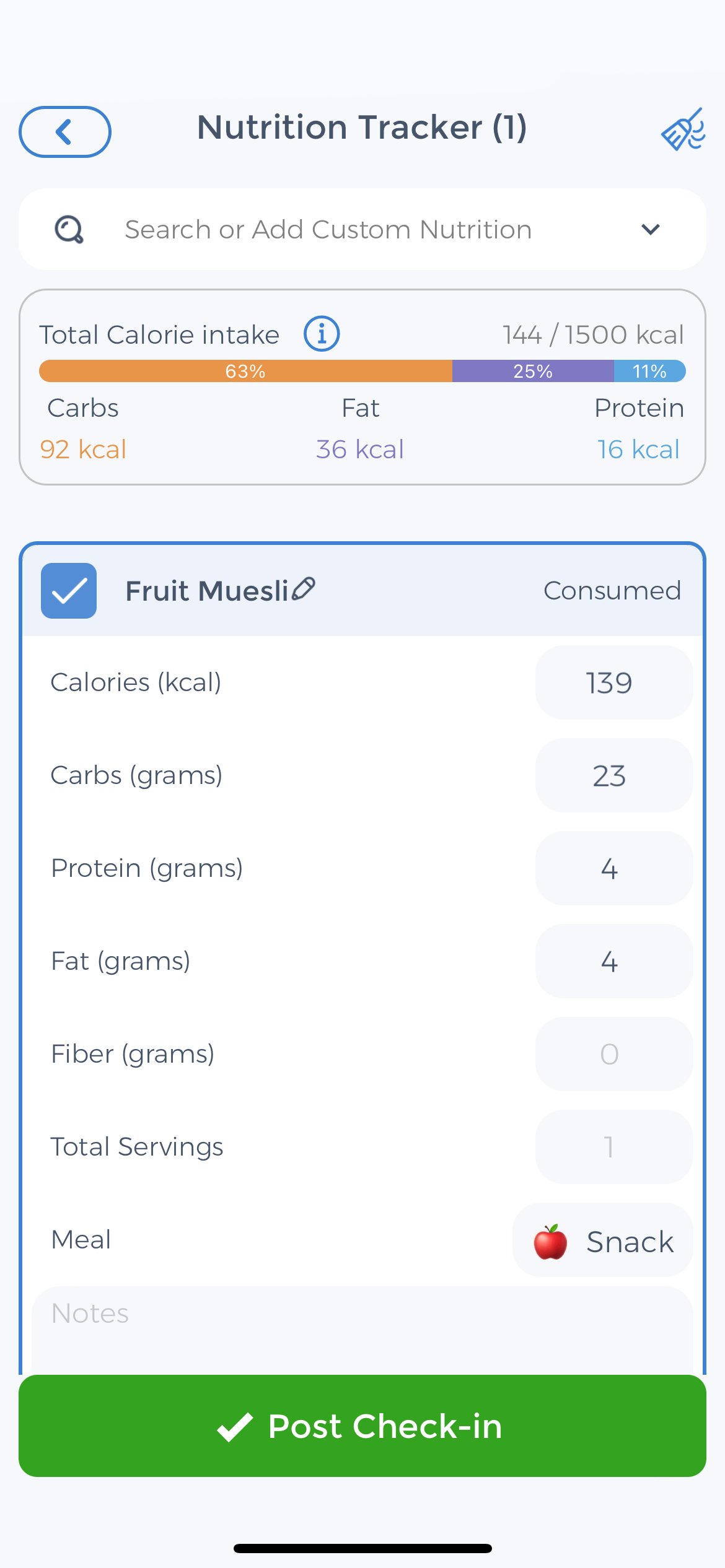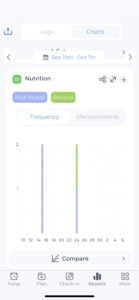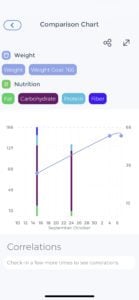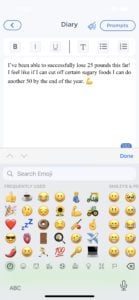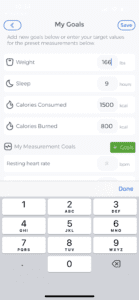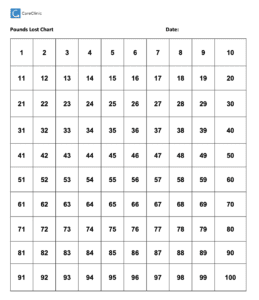
A weight loss tracker is a simple but effective tool that can help you lose weight and keep it off. Whether you prefer a free printable weight loss tracker PDF, a weight tracker chart PDF, or a digital app, having a system in place makes all the difference. You can use a weight loss tracker template PDF free download to track your daily calorie intake, measurements, and progress towards your weight loss goals. There are many different formats available, including 12 week weight loss tracker templates, weekly weight loss tracker PDF options, and daily weight tracker printables.
Weight loss trackers can also be useful for a variety of health conditions, including obesity, diabetes, and heart disease. For individuals managing diabetes or taking GLP-1 medications for weight loss, tracking weight alongside blood sugar levels provides crucial insights into how diet and exercise affect both metrics. By tracking weight loss progress, you can see how your lifestyle changes impact your overall health. Below, we help you pick the right template to get started, whether you need a blank 12 week weight loss tracker or a simple daily log.
Table of Contents
- What are the benefits of using a monthly weight loss tracker?
- Choosing the Right Weight Tracker Chart PDF Format
- What should you look for in a weight loss tracker?
- Printable template or a digital app?
- Do you also need a meal tracker?
- What is a Weight Loss Measurement Chart?
- Weight loss tracker bullet journal
- Weight Tracking for Specific Health Conditions
- How can you manage your weight?
- What is a 12-week countdown weight loss tracker?
- What is a pounds lost chart?
- What is a weekly weigh-in chart?
- How to Keep Track of Weight Loss Progress
- Weight Loss Tracker Website vs Mobile App
- Summary of Best Free Printable Weight Loss Planner
What are the benefits of using a monthly weight loss tracker?
There are many benefits to using a lose weight tracker. Perhaps the most obvious benefit is that it can help you lose weight. By tracking your daily calorie intake, you will be able to see exactly how much food you are eating and how many calories you are burning. This information can be very useful in helping you to make the necessary changes to your diet and exercise routine.
In addition to helping you lose weight, a weight loss tracking system can also help you to maintain your weight loss. By monitoring your progress with a body weight tracker, you can see when you are starting to slip back into old habits. This information can be very useful in helping you to make the necessary changes to your lifestyle.
Finally, a fat loss tracker can also be a great motivator. By seeing your progress in a lose weight diary or digital app, you will be motivated to continue with your weight loss goals. This can help you to stay on track and reach your goals.
Choosing the Right Weight Tracker Chart PDF Format
When selecting a weight tracker chart pdf, consider what information you want to track and how often you’ll update it. A weight loss tracker pdf free download typically includes space for daily, weekly, or monthly weigh-ins, plus additional measurements like body fat percentage, waist circumference, and BMI.
The most popular formats include:
- 12 week weight loss tracker template: Ideal for setting a specific 12-week goal with weekly check-ins. This format provides enough time to see significant results while maintaining motivation.
- Weekly weight loss tracker pdf: Best for those who prefer consistent weekly weigh-ins without daily fluctuation stress. Includes space for weekly measurements and notes.
- Daily weight tracker printable: Perfect for data-driven individuals who want to track daily patterns and correlations between diet, exercise, and weight changes.
- Blank 12 week weight loss tracker: Customizable templates that let you decide exactly what to track over a 3-month period.
For individuals managing specific health conditions, combining a weight tracker with other medical forms creates a complete picture. For example, diabetics benefit from using both a weight tracker and a printable blood sugar log to see how weight changes correlate with glucose levels, especially when taking medications like Ozempic, Wegovy, or other GLP-1 receptor agonists.
What should you look for in a weight loss tracker?
When choosing an app to monitor weight loss or a printable template, there are a few things you should keep in mind. First of all, you need to choose a tracker that is easy to use. Whether you’re downloading a weight loss tracker template PDF free or selecting a mobile app, simplicity ensures you’ll stick with it long-term. There are many different types of trackers available, so it is important to find one that is simple and straightforward to use.
In addition, you should look for a tracker that is customizable. This means that you should be able to customize the tracker to fit your specific needs. For example, some trackers allow you to track your calorie intake, while others allow you to track weight loss progress with specific measurements. Choose a tracker that is right for you.
The CareClinic App is a simple but effective tool that can help you track your weight loss and keep it off. Built-in measurement trackers in the app help you record your calories, weight, and water consumption. The reports section provides motivation and helps build habits by showing you your progress in charts that can be printed and shared. Logs are also a great way to view your exact check-ins over a period of time and a good way to hold you accountable. This weight loss tracker app makes it easy to monitor all aspects of your health journey.
Printable template or a digital app?
There are many pros and cons to both printable weight loss tracker templates and digital apps for recording weight loss.
Pros for weight loss tracker printable
- Less likely to be deleted or forgotten
- Easy to share with friends, family and caregivers
- Can be stored in a physical album or binder as a weight diary
- Many weight loss tracker pdf free download options are available with no ongoing costs
Cons for weight loss tracker printable
- Can be lost or damaged
- Takes up physical space
- May require frequent printing
Pros of digital weight loss tracker app
- Automatically backs data so it can’t be lost
- More comprehensive data tracking features to track your weight loss
- Don’t need to carry around the physical printout
- Provides detailed reports and logs to help spot correlations
- Can provide reminders to record weight daily along with other measurements
- Best weight tracker apps offer online weight loss tracker features with cloud sync
Cons for digital weight loss tracker
- Requires access to a digital device
- May be difficult to share physical copies with friends, family, and caregivers
- Some people prefer the feeling of physically writing down their progress
There are many pros and cons to both printable weight loss tracker templates and apps to track weight loss. Choose the one that is right for you below:
Free Printable Weight Loss Tracker PDF
⬇️ Download this Weight Loss Tracker PDF Free
This weight loss tracker pdf free download includes pre-formatted spaces for weekly weigh-ins, body measurements, and goal tracking. Print as many copies as you need throughout your weight loss journey.
Blank Weight Loss Tracker & Measurements Template
⬇️ Download this Blank Weight Loss Tracker Template Free
This blank weight loss tracker template lets you customize exactly what you want to track. Add your own measurement categories, create custom weigh-in schedules, or use it as a flexible 12-week tracker by filling in your start date.
Online Weight Loss Planner App
📱 Download the Weight Loss Planner App
You can edit your units in these charts so if you’d like to record pounds lost (lb) or kilograms lost (kg) both can work in the App and in the printables that are in PDF format. Other units of weight that can be recorded include ounces (oz), stones (st), grams (g) and milligrams (mg).
The average weight for a male in the United States is 194.7 pounds (88.4 kilograms), while the average weight for a female is 176.6 pounds (80.1 kilograms). However, these averages vary depending on age. For example, the average weight for a 20-year-old male is 175.5 pounds (79.7 kilograms), while the average weight for a 20-year-old female is 161.4 pounds (73.1 kilograms). You can learn more about normal weights, and obesity levels by race as well at the CDC website here.
Weekly or Monthly Weight Loss Tracking
There are pros and cons to both weekly and monthly weigh-ins. Monthly weigh-ins can be less stressful, as you do not have to worry about weighing in every week. However, monthly weigh-ins can also be less accurate, as weight can fluctuate from day to day.
Weekly weigh-ins are more accurate, as they reflect your true weight over the course of a week using a consistent weigh in tracker schedule. However, weekly weigh-ins can also be more stressful, as you may feel like you need to lose weight each week. We recommend you try both and see which one works better for you.
Benefits of Using a Weekly Weight Loss Tracker PDF
A weekly weight loss tracker pdf offers the sweet spot between daily tracking (which can be obsessive) and monthly tracking (which lacks detail). Here’s why many people prefer the weekly format:
- Consistent accountability: Weekly check-ins create a regular rhythm without daily pressure
- Trend identification: Four weigh-ins per month provide enough data to spot patterns
- Reduced anxiety: Less frequent than daily weighing, which can be affected by water retention, meal timing, and hormonal fluctuations
- Practical planning: Weekly reviews let you adjust your diet and exercise plan based on results
Most weekly weight loss tracker pdf templates include space for the same day each week (many experts recommend Wednesday or Friday mornings for the most consistent results, avoiding weekend weight gain from social eating).
Digital apps have the advantage of being more accurate, as they track weight loss progress over time with automatic date stamps. A daily weight tracker app can help you see patterns that weekly or monthly tracking might miss, giving you more data points to understand your weight fluctuations. They also have the advantage of being more convenient, as you can access them from anywhere.
Daily Weight Tracker Printable: Is Daily Tracking Right for You?
A daily weight tracker printable works best for specific situations and personality types. While daily weigh-ins aren’t for everyone, they can be valuable tools when used correctly.
When a daily weight loss tracker makes sense:
- You’re tracking correlations between specific foods and water retention
- You understand that daily fluctuations (1-3 pounds) are normal and don’t cause anxiety
- Your doctor has recommended daily monitoring due to heart failure, kidney disease, or pregnancy complications
- You’re data-driven and enjoy analyzing patterns over time
When to avoid daily tracking:
- Daily weight changes cause stress or anxiety
- You have a history of disordered eating
- You’re prone to making drastic diet changes based on single weigh-ins
If you choose a daily weight tracker printable, use it to calculate weekly averages rather than focusing on individual days. This smooths out normal fluctuations from sodium intake, hydration, hormones, and digestion timing.
Do you also need a meal tracker?
In addition to a weight loss tracker, you may also want to consider using a meal tracker. A meal tracker can help you to track what you eat and when you eat it. This is one of the essential weight loss tracking tools available.
This information can be very useful in helping you to make the necessary changes to your diet such as portion control and making healthier choices. The main things to look for in a printable meal tracker are:
- Tracking by meal or snack
- The ability to track calories, carbohydrates, fat, protein, and other nutrients
- Easy-to-use interface
- The ability to add custom foods
- The ability to export data
CareClinic’s nutrition tracker enables all of the features listed above. You can log breakfast, lunch, dinner, and snacks.
Plus, you can add custom foods and edit nutrient data. And if you want to share your progress with a friend or caregiver, you can export your data into a CSV or PDF.
Download Printable Meal Tracker PDF
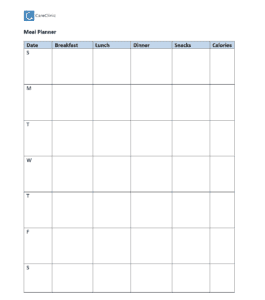
⬇️ Download this meal planner template free
Meal Tracker Nutrition App
What is a Weight Loss Measurement Chart?
A weight loss measurement chart is a great tool to help you track your weight loss progress and see how well you are doing on your weight loss journey. This type of chart can be very helpful in setting goals and keeping yourself motivated. There are a few different types of weight loss measurement charts, so it is important to find one that will work best for you.
One weight loss measurement chart type is the BMI (Body Mass Index) chart. The BMI chart is a good way to see if you are overweight, obese, or at a healthy weight. This chart will give you an idea of where you fall on the BMI scale and can function as an obesity tracker for monitoring health risks.
Another type of weight loss tracker chart is the calorie intake chart. This chart can help you track how many calories you are eating each day. This chart can also help you see where you need to make changes in your diet to lose weight.
Other measurements for weight loss
In addition to tracking your weight, it is also essential to track your waist circumference and body fat percentage.
Blood sugar chart: This chart can help you track your blood sugar levels throughout the day. This chart can also help you see where you need to make changes in your diet to lose weight.
Waist circumference is a good indicator of abdominal obesity, a risk factor for many chronic diseases.
Body fat percentage is a good indicator of overall body fatness. A healthy body fat percentage for adults is 20-21% for women and 8-9% for men. Download the blank adult BMI calculator PDF below:
Body Measurement Tracker Printable
⬇️ Body Measurements Tracker PDF
This weight tracker chart pdf includes comprehensive body measurement tracking beyond just weight. Track chest, waist, hips, arms, and thighs to see progress even when the scale doesn’t move. Body measurements often show fat loss that weight alone doesn’t reflect, especially when building muscle.
Weight loss tracker bullet journal
If you are looking for a way to track weight loss and stay on track with your goals, consider using a bullet journal. Many people use this as a personal lose weight diary to document their journey.
Bullet journals are great for tracking all kinds of goals, including weight loss. Bullet journals can be customized to fit your needs, so you can track whatever information is most important to you. To create a weight loss tracker in your bullet journal, start by making a list of your goals.
Then, make a chart with columns for each day of the week. In each column, track your weight, what you ate, and how much you exercised. You can also include other information such as how you are feeling or any progress you have made. You may also record your measurements, such as your waist circumference or body fat percentage.
Be sure to review your progress regularly to see how you are doing and make any necessary changes to your plan. This weight goal tracker approach helps you stay accountable and motivated.
Weight Tracking for Specific Health Conditions
Weight management plays a crucial role in managing several chronic health conditions. A weight loss tracker becomes even more valuable when you’re addressing specific medical concerns.
Weight Loss Tracking for Diabetes Management
For individuals with type 2 diabetes or prediabetes, weight loss of just 5-10% of body weight can significantly improve blood sugar control. Using a weight tracker alongside blood glucose monitoring helps you identify how weight changes affect your HbA1c levels. Many patients using GLP-1 medications like Ozempic, Mounjaro, or Wegovy for weight loss benefit from detailed tracking to:
- Monitor medication effectiveness over 12-week periods
- Correlate weight loss with improved fasting glucose readings
- Document progress for insurance authorization renewals
- Identify weight loss plateaus that may require dose adjustments
Learn more about tracking GLP-1 injections and weight loss progress with comprehensive shot tracking tools.
Obesity Management and Bariatric Surgery Preparation
Patients preparing for bariatric surgery often need to lose weight before the procedure. A 12 week weight loss tracker template helps document pre-surgery weight loss requirements (typically 5-10% of body weight) that many insurance companies mandate. Post-surgery, weekly tracking helps monitor:
- Initial rapid weight loss phase (first 3-6 months)
- Slower weight loss phase (6-12 months)
- Weight maintenance after reaching the goal weight
- Early identification of weight regain that may need intervention
Heart Health and Weight Management
For individuals with heart failure, daily weight tracking isn’t just about weight loss—it’s a critical early warning system. A sudden gain of 2-3 pounds in a day or 5 pounds in a week can indicate fluid retention from worsening heart failure. Healthcare providers often request that these patients maintain daily weight logs and call immediately if their weight increases beyond set thresholds.
Complement your weight tracking with a printable vital signs flow sheet to monitor blood pressure, heart rate, and other key health indicators alongside your weight.
How can you manage your weight?
This can be an entire post in itself, but here are the top 5 ways to manage your weight and why they are important:
1. Eat a healthy diet: Eating a healthy diet is important for many reasons. It can help you maintain a healthy weight, have more energy, and reduce your risk of developing chronic diseases. A healthy diet includes some fresh fruits and vegetables, lean protein, and good fats such as avocado. Using a weight loss tracking system alongside meal planning can significantly improve your results.
2. Get regular exercise: Exercise can help you lose weight, tone your body, and improve your overall health. It is important to find an exercise plan that works for you and stick with it. Many people find that having a lose weight tracker helps them stay consistent with their exercise routine.
3. Drink plenty of water: Drinking enough water is important for many reasons. It can help you stay hydrated, fill you up so you eat less, and flush out toxins. Tip: Drink water before a meal.
4. Avoid sugary drinks and junk food: Sugary drinks and junk food are high in calories and low in nutrients. They can contribute to weight gain and increase your risk of developing chronic diseases.
5. Get enough sleep: Sleep is important for your overall health. It can help you lose weight, improve your mood, and reduce your stress levels. Research shows that poor sleep can interfere with weight loss efforts.
Managing your weight can be a challenge, but it is important to take care of your body. By following these tips and using either an online weight loss tracker or a printable template, you can make healthy choices that will help you reach your goals. Of course, added to this is to just maintain a weight loss goal chart to log your weight weekly or monthly!
What is a 12-week countdown weight loss tracker?
A 12-week countdown weight loss tracker is a great way to stay on track with your weight loss goals. It can help you to set a realistic goal for yourself and then track your progress over time using a structured weigh-in tracker system. This can be an extremely helpful tool if you are trying to lose weight, and want to make sure that you are seeing results. Many people find this timeframe ideal because it’s long enough to see significant changes but short enough to maintain motivation.
Why 12 Weeks is the Optimal Tracking Period
The 12 week weight loss tracker template has become popular for good reason. Research shows that it takes approximately 12 weeks to form lasting habits and see measurable body composition changes. A blank 12-week weight loss tracker gives you:
- Sustainable pacing: Aiming for 1-2 pounds per week over 12 weeks means 12-24 pounds of healthy weight loss
- Habit formation: Three months is sufficient time to establish new eating and exercise patterns
- Measurable milestones: Weekly check-ins provide 12 data points to identify trends
- Motivation maintenance: Short enough to stay focused without losing momentum
What to Track in Your 12 Week Template
A comprehensive 12 week weight loss tracker template free download should include:
- Starting weight, goal weight, and weekly targets
- Body measurements (chest, waist, hips, thighs, arms)
- Weekly weigh-in dates and results
- Notes section for exercise, diet changes, or how you feel
- Progress photos reminders (every 2-4 weeks)
- Non-scale victories (energy levels, clothing fit, strength improvements)
For those managing obesity or metabolic conditions, a 12-week tracker provides healthcare providers with detailed progress data during follow-up appointments. This is particularly valuable for patients on weight management medications or those preparing for bariatric surgery consultations.
What is a pounds lost chart?
A pounds lost chart is a great way to track your progress if you are trying to lose weight. This can help you to see how much weight you have lost over time, and can also help you to set goals for yourself. If you are trying to track my weight loss effectively, then using a pounds lost chart can be a great way to stay on track. This visual tracker weight loss tool makes it easy to celebrate milestones and stay motivated.
Can work with kilograms lost as well! Just circle off how much you lost and add a date below it!
What is a weekly weigh-in chart?
A weekly weigh-in chart is a great way to track weight loss if you prefer a consistent schedule. This can help you to see how much weight you have lost over time, and can also help you to set goals for yourself. If you are trying to lose weight, then using a weekly weigh-in chart can be a great way to stay on track. The weekly approach provides enough data points to see trends without becoming obsessed with daily fluctuations.
How to Keep Track of Weight Loss Progress
Learning how to keep track of weight loss is essential for long-term success. Here are some proven strategies:
- Choose your tracking method: Whether you prefer a digital weight tracker app or printable templates, consistency is key
- Set a regular schedule: Use a daily weight tracker, weekly weigh-in tracker, or monthly check-ins based on your preference
- Track multiple metrics: Don’t just monitor weight—track measurements, how you feel, energy levels, and fitness improvements
- Use weight loss tracking tools: Leverage apps, charts, and journals to visualize your progress
- Check weight loss regularly: Review your data weekly or monthly to identify patterns and adjust your approach
The CareClinic app makes it simple to track your weight loss with automated reminders, detailed charts, and comprehensive logs. Whether you’re using it as a body weight tracker, fat loss tracker, or complete health management system, you’ll have all your data in one place.
Weight Loss Tracker Website vs Mobile App
When choosing between a weight loss tracker website and mobile app, consider your lifestyle. A weight loss tracker online free option provides flexibility for those who prefer desktop access, while mobile apps offer convenience for tracking on the go. Many users find that a combination of both works best—using the website for detailed reports and planning, and the mobile app for quick daily entries.
The CareClinic platform offers both a weight tracker app for Android and iOS, plus web access, giving you the flexibility to track your progress wherever you are. This makes it one of the best weight tracker apps available for comprehensive health monitoring.
Summary of Best Free Printable Weight Loss Planner
A free weight loss tracker can help you lose body weight quickly as you can visualize your progress and be held accountable for your results. Whether you prefer to track my weight loss using a weekly weight loss tracker pdf, a 12 week weight loss tracker template, a daily weight tracker printable, or a monthly weight loss tracker template, having a system in place is crucial. You also have the option of using a free weight loss tracker printable sheet or you can use apps to track weight loss digitally—you just need to pick what is right for you!
The templates are free and work for any year and are in PDF format for easy resizing and printing. Our weight loss tracker template pdf free downloads include options for different tracking frequencies and measurement types. Tracking your weight can be fun and a great goal to set as it improves your health and how you feel about yourself. Many templates on average are for 12 weeks or 3 months, which means you will need to print 4 sheets to account for the whole year depending on your health and fitness goal.
Whether you’re looking for a lose weight tracker app, a weight tracker chart pdf for manual tracking, a gain weight tracker for muscle building, or a comprehensive weight loss track system, CareClinic has you covered. The app serves as both a losing weight tracker and a wellness platform that helps you understand the bigger picture of your health.
If you require any additional tracking forms, or body measurement charts and calendars, feel free to contact us and we will create them for you. However, we recommend using a mobile app such as CareClinic in this case as it is flexible and can handle all sorts of measurements and provide you reports that are not possible in a printed weight loss tracker. The app functions as a complete weight loss tracker online solution with offline capabilities, making it reliable regardless of your internet connection.


